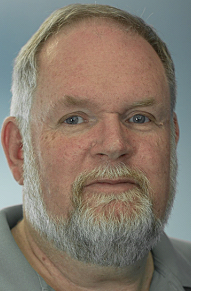




CHRIS EASTON


chris.easton@anu.edu.au





Enzymatic production of fertilizers and transport fuels
Abstract
In partnership with CSIRO, groups at the University of Manchester (UK), the University of Queensland, RMIT University, the University of Sydney and the Australian National University are developing enzyme biotechnology for the conversion of biomass to liquid transport fuels. The broad themes of these groups are to investigate:
i) enzymatic pathways for the deconstruction of lignin;
ii) novel cellulases for the breakdown of cellulose;
iii) in planta production of lignocellulose degrading enzymes; and
iv) the production of formate to store hydrogen and as a source of commodity chemicals.
With CSIRO and the Grains Research and Development Corporation, the Australian National University group is also developing enzyme biotechnology for fertilizer production.
These projects will be introduced.
2000-present: Professor, Research School of Chemistry, Australian National University
1995-2000: Senior Fellow, Research School of Chemistry, Australian National University
1986-1994: Department of Chemistry, University of Adelaide
1983-1986: Department of Chemistry, University of Canterbury
1982: Research School of Chemistry, Australian National University
1980-1981: Department of Chemistry, Harvard University
1980 PhD; 1998 DSc: Department of Chemistry, University of Adelaide
Fellow of the Australian Academy of Science, the Royal Society of Chemistry, the Royal Australian Chemical Institute
Research Fields and Interests:
Enzyme biotechnology for biofuel production, finite resource management and greenhouse gas mitigation; hormone production, metabolism and regulation in human cancer; biochemical reaction mechanisms; amino acid and peptide free radical chemistry and applications in materials science and biotechnology.
Selected Publications:
Amos, R. I. J., Heinroth, F., Chan, B., Ward, A. J., Zheng, S., Haynes, B. S., Easton, C. J., Masters, A. F., Maschmeyer, T. and Radom, L. (2015) Hydrogen from formic acid via its selective disproportionation over nanodomain-modified zeolites. ACS Catalysis 5, 4353-4362.
Alissandratos, A., Kim, H.-K. and Easton, C. J. (2014) Formate Production through carbon dioxide hydrogenation with recombinant whole cell biocatalysts. Bioresource Technology 164, 7-11.
Amos, R. I. J., Heinroth, F., Chan, B., Zheng, S., Haynes, B. S., Easton, C. J., Masters, A. F., Maschmeyer, T. and Radom, L. (2014) Hydrogen from formic acid through its selective disproportionation over sodium germanate - a non-transition-metal catalysis system. Angew Chem. 53, 11275-11279.
Alissandratos, A., Kim, H.-K., Matthews, H., Hennessy, J. E., Philbrook A. and Easton, C. J. (2013) Clostridium Carboxidivorans Strain P7T Recombinant Formate Dehydrogenase Catalyzes Reduction of CO2 to Formate. Appl. Environ. Microbiol. 79, 741–744.
Arthur, I. N., Hennessy, J. E., Padmakshan, D., Stigers, D. J., Lesturgez, S., Fraser, S. A., Liutkus, M., Otting, G., Oakeshott J. G. and Easton, C. J. (2013) In Situ Deprotection and Incorporation of Unnatural Amino Acids During Cell-Free Protein Synthesis. Chem. Eur. J. 19, 6824–6830.
Hennessy, J. E., Philbrook A., Bartkus, D. M., Kim, H.-K., Latter, M. A., Scott, C., Oakeshott, J. and Easton, C. J. (2012) Carbamate kinases from hyperthermophilic bacteria and their use for producing carbamoyl phosphate and urea. PCT Int. Appl. (2012), WO 2012171070 A1 20121220.